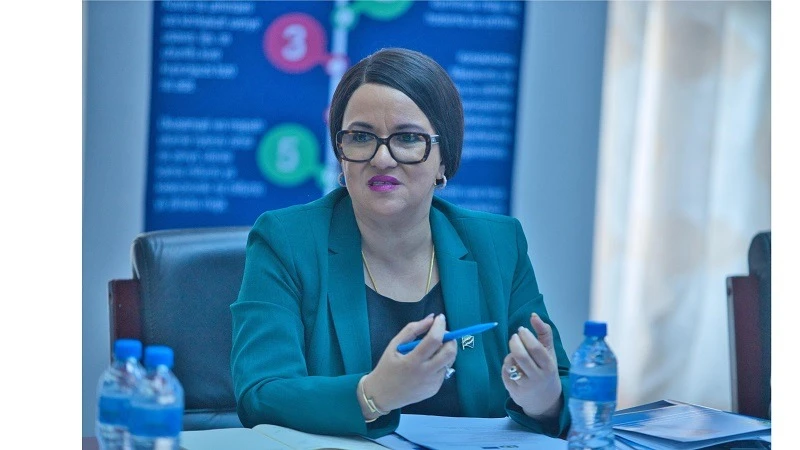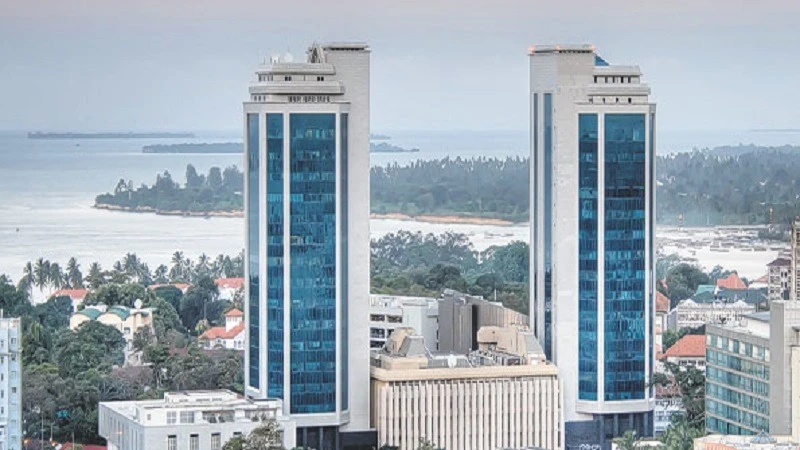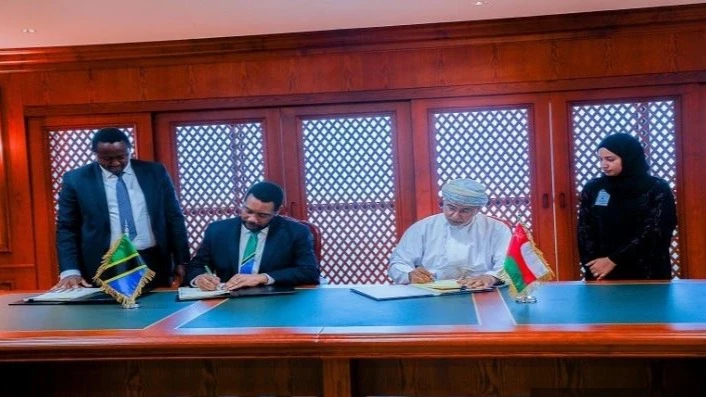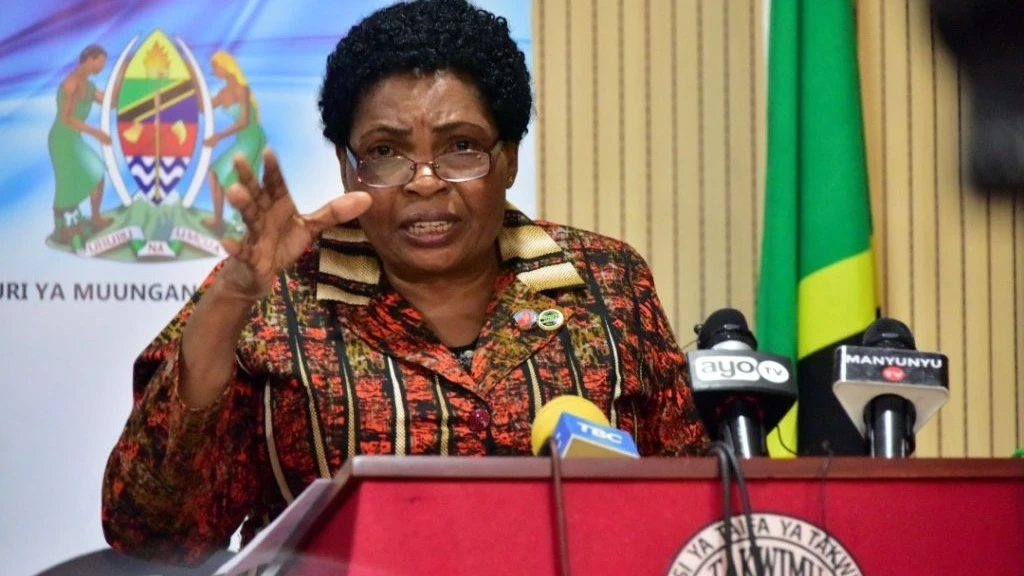Capitalising Tanzania’s state-owned firms for growth

A three-day workshop involving the Treasury Registrar’s Office as well as directors and board members of companies in which the government has minority stakes was held earlier this year.
By Kettie Chipeta
The conclusion of the event included remarks by Dr Tausi Kida, the Permanent Secretary in the President’s Office (Planning and Investment), who put forward several innovative strategies for enhancing Tanzania’s state-owned enterprises (SOEs).
One of the strategies she highlighted was capitalisation, which she described as a potentially transformative approach.
This proposal, backed by other senior officials such as Treasury Registrar Nehemiah Mchechu, has triggered important conversations about the true meaning of capitalisation and how Tanzania can skilfully guide its SOEs through this multifaceted transformation.
As the nation’s economy evolves, this strategy could be pivotal towards ensuring sustained growth and stability, though its success hinges on precise execution and thoughtful planning.
Capitalisation represents far more than just a financial boost; it requires a fundamental restructuring of how enterprises operate – from governance to financial management.
For Tanzania, it promises not only to stabilize SOEs financially but also to attract greater investment, creating competitive advantages in key industries.
However, this journey is intricate, and not every SOE is primed or suitable for capitalisation. A focused approach that prioritises certain sectors is crucial.
Industries like energy, housing, telecommunications, and transportation form the backbone of Tanzania’s infrastructure and are vital to the nation’s economic future.
Take the energy sector, for instance. Modernising this sector could transform daily life. Problems with access to affordable and reliable energy remain a significant challenge for many communities, both urban and rural.
Addressing this gap could improve living standards for millions while simultaneously driving broader economic activity and development.
As Tanzania weighs the benefits of capitalisation, the role of public-private partnerships (PPPs) must be seriously considered. This is because PPPs can serve as a complementary strategy, introducing market discipline and encouraging accountability within SOEs.
These partnerships allow private companies to bring their expertise, efficiency and innovation to the table, aligning with public goals. The National Housing Corporation (NHC) offers an excellent example of the potential for such partnerships to drive growth.
Through joint ventures, NHC has attracted private capital to tackle the nation’s housing shortage. Notable projects like the Kariakoo Market development in Dar es Salaam city are geared at transforming urban landscapes while speeding up timelines.
By using land as equity, NHC partners with various private investors to elevate construction quality, create jobs and reshape cities.
This approach is mirrored in various other sectors, notably in Tanzania’s maritime industry, where successful public-private collaboration has also taken root.
A prime example here is the recent 30-year concession agreement between the Tanzania Ports Authority and Dubai-based DP World, a global leader in port and logistics operations.
It is understood that, under this agreement, DP World will operate and modernise key facilities at the Dar es Salaam Port including by investing in infrastructure upgrades to ease congestion, improve cargo handling, and boost the port’s overall efficiency.
This concession is a long-term partnership that entrusts DP World with the responsibility of enhancing one of Tanzania’s most vital trade gateways.
By leveraging private investment and expertise through this concession, Tanzania is positioning itself as a more competitive player in international trade.
Beyond relieving financial pressure on the government, PPPs introduce a much-needed level of
accountability and market discipline to SOEs.
Private companies involved in these ventures are typically held to performance metrics that promote transparency and adherence to best practices. This accountability is critical for long-term success.
However, for these partnerships to thrive, a solid regulatory framework must be established. The Tanzanian government must ensure that the contracts are transparent, performance is closely monitored, and risks are fairly shared. Public interests should be safeguarded while allowing the private sector the flexibility it needs to innovate and deliver results.
Looking beyond PPPs, another compelling path to capitalisation is the public listing of SOEs on bourses like the Dar es Salaam Stock Exchange (DSE).
By going public, SOEs could tap into private investment while simultaneously subjecting themselves to market demands for greater transparency and efficiency.
Listed companies are required to regularly publish their financial reports and follow strict corporate governance standards, which could help combat corruption and operational inefficiencies.
Additionally, public listings offer a unique opportunity for ordinary Tanzanians to become shareholders in these enterprises, fostering a deeper sense of economic patriotism and investment in the nation’s future.
There are international precedents that highlight the potential success of this approach. For instance, China Mobile, a leading telecommunications company, achieved successful listings on global stock exchanges, allowing it to raise significant capital for modernisation and propelling it to a leading position in the global telecommunications industry.
Tanzania could explore similar dual listings, both locally and internationally, to attract foreign investment and expertise.
However, these moves require careful preparation. Before embarking on an initial public offering (IPO), SOEs must be in sound financial health and have strong governance structures in place.
Proper share pricing and efforts to build investor confidence will be crucial to the success of such initiatives.
To ensure that the gains from capitalisation are sustained, Tanzania might consider creating a sovereign wealth fund to manage the proceeds from public listings or privatisation efforts.
A notable example is Singapore’s Temasek Holdings, founded in 1974, which manages a diverse portfolio of SOEs and investments in financial services, telecommunications, technology and real estate.
By leveraging profits from these investments, Temasek not only maximises long-term financial returns but also supports Singapore’s economic and social development goals, with a strong emphasis on sustainability in areas like renewable energy, healthcare and education.
A similar fund in Tanzania could reinvest revenues into critical sectors, ensuring that the benefits of capitalisation contribute to broader national development goals. Nonetheless, the road to successful capitalisation is fraught with challenges, particularly corruption.
Brazil’s Petrobras scandal serves as a notable example of how corruption can impact state-owned enterprises. Petrobras, primarily engaged in the exploration, production, refining and distribution of oil and natural gas, became embroiled in a significant corruption scandal that began in 2014.
Investigations revealed a scheme involving inflated contracts awarded to construction firms, with excess funds redirected to company executives and public officials in the form of kickbacks.
This corruption led to substantial financial losses for Petrobras, impacting its stock value and overall financial stability. As the investigations progressed, they uncovered widespread irregularities that raised concerns about governance and oversight within the organisation.
To prevent similar challenges, Tanzania must implement strong anti-corruption measures, including independent audits to ensure financial transparency, protection for whistleblowers to encourage reporting of misconduct, and strict accountability across government and enterprises.
Without these safeguards, even promising reforms could falter, highlighting the importance of integrity in fostering public trust and economic growth.
Another key challenge is ensuring that SOEs are ready for capitalisation. Not every enterprise is sufficiently equipped to attract private investment or thrive in a competitive market environment.
Before moving forward, a thorough assessment of each SOE’s financial viability and management capacity is essential. Capitalising a poorly managed or underperforming SOE could result in waste of valuable resources and erode investor confidence.
For this reason, the government must adopt a selective approach, focusing on those SOEs with strong foundations and clear growth potential.
Governance reforms are also paramount. The appointment of SOE boards should be based on merit, expertise and independence rather than political affiliations. Effective leadership will be crucial to navigating the complexities of a competitive market environment, ensuring that enterprises remain profitable and attractive to investors.
Additionally, robust governance frameworks must be reinforced by a legal structure that emphasizes transparency and accountability. Without these elements in place, efforts at capitalisation could be undermined by inefficiencies or mismanagement, stifling the potential for growth.
Despite these complexities, the rewards of successful capitalisation are immense. Tanzania stands at a critical juncture, with the opportunity to transform its SOEs into modern, efficient enterprises capable of driving sustained economic growth.
Capitalisation offers the resources necessary for modernisation, introduces a culture of accountability and aligns SOEs with market realities.
By learning from international examples like Singapore and China, Tanzania can strike a balance between state control and market-driven efficiency, ensuring that national interests are safeguarded while driving competitiveness.
For this vision to be realised, a strategic and carefully managed approach is essential. Transparent governance, a strong regulatory framework, and meticulous planning will be key to maintaining momentum.
Not all SOEs will be suitable candidates for capitalisation, though, and a one-size-fits-all strategy could lead to failures. However, with thoughtful selection and targeted implementation, Tanzania can unlock the full potential of its SOEs, setting the stage for long-term economic progress and improved living standards for its citizens.
Engaging Tanzanian citizens in this transformative process is equally important. By demonstrating the tangible benefits of capitalisation such as job creation, better public services and improved living conditions, the government can foster a sense of collective ownership and national pride in this journey towards a more prosperous future.
• Kettie Lomaquala Chipeta is a freelance writer and management consultant with expertise in Results-Based Management (RBM), strategic planning, leadership development, coaching, governance, change management and data analysis. She is an avid reader of The Guardian newspaper. For inquiries, she can be reached at [email protected] or +255 692 108 677.
Top Headlines
© 2024 IPPMEDIA.COM. ALL RIGHTS RESERVED

















